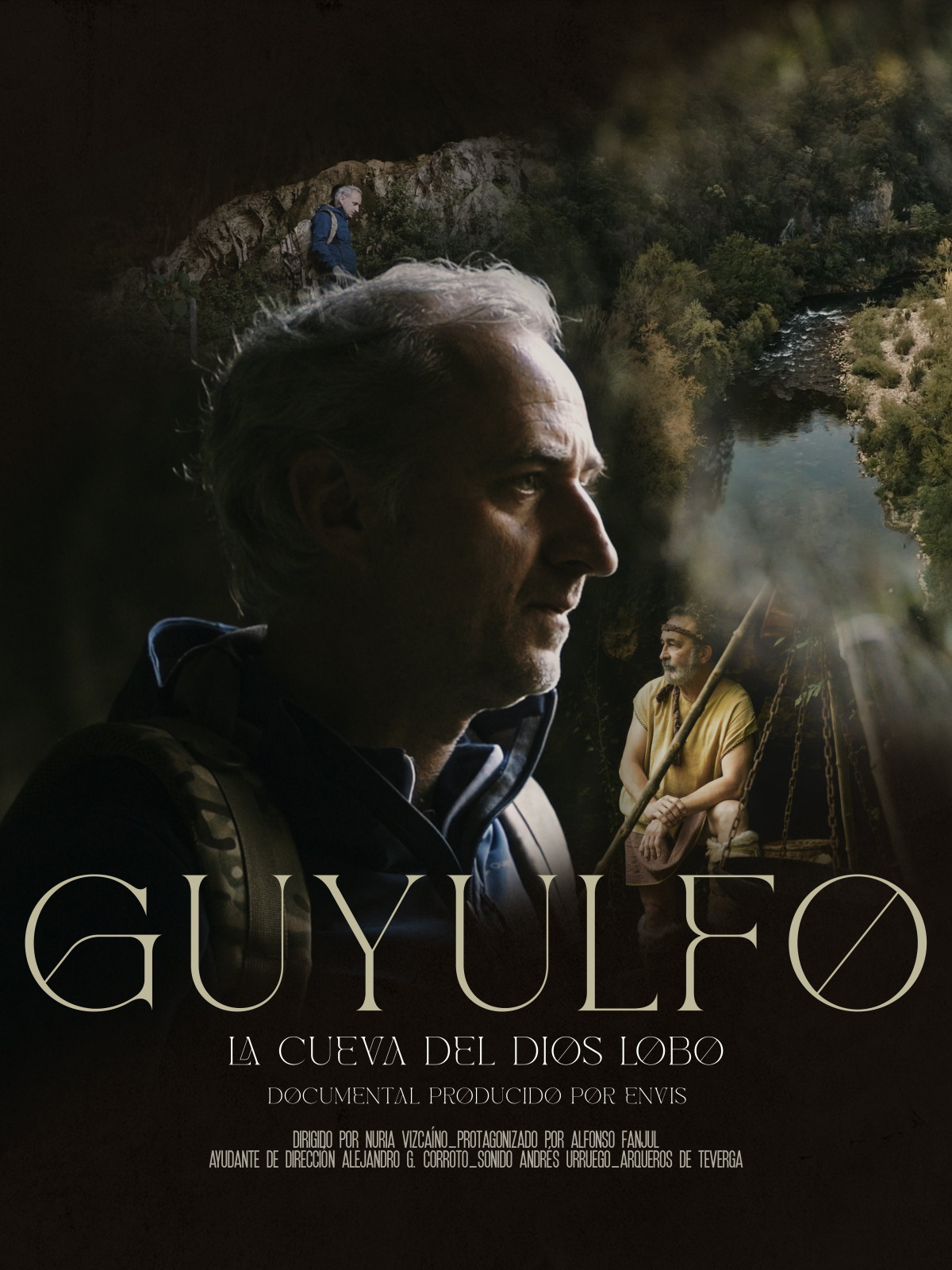La historia bajo la tierra: Un viaje a las profundidades de "Guyulfo, la cueva del dios lobo"
ART ESP /ING
El cine documental, en su mejor forma, no solo informa, sino que transporta. Y eso es precisamente lo que logra "Guyulfo, la cueva del dios lobo", la fascinante obra de Nuria Vizcaíno Cobos. Con solo 18 minutos de duración, este cortometraje finalista en el Paradox Film Festival nos sumerge en un emocionante relato de descubrimiento, historia y misterio, revelando un tesoro arqueológico oculto en un remoto rincón de Asturias.
Vizcaíno, una realizadora con una trayectoria versátil y una clara pasión por el arte y la cultura, demuestra en este trabajo su habilidad para tejer una narrativa cautivadora. El documental se desenvuelve con una fluidez notable, mezclando recreaciones dramáticas del hallazgo con los testimonios de los expertos, creando una experiencia inmersiva y educativa. La tensión del descubrimiento arqueológico, la emoción de encontrar herramientas romanas y restos óseos, se vive a través de las dramatizaciones, mientras que las entrevistas con figuras como Alfonso Fanjul y Carmen Alonso le otorgan a la historia una sólida base científica y humana.
El relato de Roberto García Florez, el guía que llevó al equipo hasta la cueva, añade un toque personal y auténtico, conectando el pasado con el presente de una manera tangible. Cada hallazgo, cada debate entre los expertos sobre el significado de lo encontrado, nos invita a reflexionar sobre cómo el pasado moldea nuestra comprensión del mundo actual.
"Guyulfo, la cueva del dios lobo" es un ejemplo brillante de cómo un cortometraje puede tener un impacto tan grande. Es una pieza cinematográfica que honra la labor de la arqueología, la pasión por el conocimiento y la belleza de las historias que la tierra guarda para nosotros. Un documental conciso, potente y, sobre todo, profundamente interesante.
----------------------
The Story Beneath the Earth: A Journey into the Depths of "Guyulfo, The Cave of the Wolf God"
Documentary filmmaking, at its best, doesn't just inform—it transports. And that's precisely what "Guyulfo, The Cave of the Wolf God," the fascinating work by Nuria Vizcaíno Cobos, achieves. At just 18 minutes long, this short film and Paradox Film Festival finalist immerses us in an exciting tale of discovery, history, and mystery, revealing an archaeological treasure hidden in a remote corner of Asturias.
Vizcaíno, a filmmaker with a versatile career and a clear passion for art and culture, demonstrates her skill in weaving a captivating narrative. The documentary unfolds with remarkable fluidity, blending dramatic reenactments of the discovery with expert testimonies, creating an immersive and educational experience. The tension of the archaeological find—the thrill of unearthing Roman tools and bone remains—is felt through the dramatizations, while interviews with figures like Alfonso Fanjul and Carmen Alonso give the story a solid scientific and human foundation.
The account from Roberto García Florez, the guide who led the team to the cave, adds a personal and authentic touch, connecting the past with the present in a tangible way. Every find, every debate among the experts about the meaning of what they've uncovered, invites us to reflect on how the past shapes our understanding of the world today.
"Guyulfo, The Cave of the Wolf God" is a brilliant example of how a short film can have such a big impact. It's a cinematic piece that honors the work of archaeology, the passion for knowledge, and the beauty of the stories the earth holds for us. A concise, powerful, and, above all, deeply interesting documentary.

